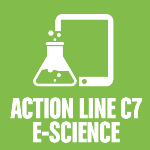Role of ICT in Academia - Reaching the unreached
ASDF International

Session 157
The role of Information and Communication Technology (ICT) in enhancing community outreach, academic and research collaboration, and education and support services in an academic setting. The key stakeholders involved in community outreach, academic, research, education, and support imparting feedback on current ICT issues and future recommendations for relevant ICT tools that would be beneficial to them in their job, and to capture current ICT issues. There are numerous areas where both ICT and Academia couldn't reach.
The novel methods are now coming up, and Information and communication technology (ICT) has contributed immensely to social and economic improvements, such as higher employment and productivity, increasing access to a higher quality of life. Benefits of ICT can be achieved directly, through improved healthcare provision and disease prevention, or indirectly, through improved social infrastructure, economic growth, or other broader determinants of population health. In the context of public health, ICT, if properly designed and implemented, can generate many positive outcomes: improved access for communities in rural or remote areas; support of healthcare professionals; real-time disease surveillance; data sharing; and data capture, storage, interpretation, and management.
According to the United Nations Educational, Scientific and Cultural Organization (UNESCO), ICT “can contribute to achieving universal education worldwide, through the delivery of education and training of teachers, improved professional skills, better conditions for lifelong learning, and the potential to reach people that are outside the formal education process. In the United Nations Millennium Development Goals, ICT is highlighted as the means to achieve the underserved, to listen and learn from their experience.
The speakers of the session Dr. Kokula Krishna Hari Kunasekaran is a very well experienced in imparting ICT in Academia. While others are subject matter experts in various fields for reaching all the areas and renowned Academicians.
Moderator
Dr Kokula Krishna Hari Kunasekaran, Secretary General, ASDF
Speakers/Panellists
- Dr Kokula Krishna Hari Kunasekaran, Secretary General, ASDF
- Dr Gunasegaran Sengodan, Chairman & Managing Director, Vidyaa Vikas Institutions, Republic of India
- Mr Abdulla Musthaq, Chairman, AVID College, Maldives
- Dr Fekry Fouad, Professor, KSA, Saudi Arabia
Session's link to WSIS Action Lines
-
 C1. The role of public governance authorities and all stakeholders in the promotion of ICTs for development
C1. The role of public governance authorities and all stakeholders in the promotion of ICTs for development
-
 C3. Access to information and knowledge
C3. Access to information and knowledge
-
 C5. Building confidence and security in the use of ICTs
C5. Building confidence and security in the use of ICTs
-
 C7. ICT Applications: E-learning
C7. ICT Applications: E-learning
-
 C7. ICT Applications: E-science
C7. ICT Applications: E-science
-
 C10. Ethical dimensions of the Information Society
C10. Ethical dimensions of the Information Society
-
 C11. International and regional cooperation
C11. International and regional cooperation
The speakers of the session will describe the issues being faced by the majority of the rural and less ICT accessible people. Imparting new styles projected by the Government and various Academia will be the crucial discussion area. Building a strong network with other countries would be a responsible task, and the modus operandi of this plan will be infused.
Session's link to Sustainable Development Process
-
 Goal 1: End poverty in all its forms everywhere
Goal 1: End poverty in all its forms everywhere
-
 Goal 7: Ensure access to affordable, reliable, sustainable and modern energy for all
Goal 7: Ensure access to affordable, reliable, sustainable and modern energy for all
-
 Goal 8: Promote inclusive and sustainable economic growth, employment and decent work for all
Goal 8: Promote inclusive and sustainable economic growth, employment and decent work for all
-
 Goal 10: Reduce inequality within and among countries
Goal 10: Reduce inequality within and among countries
Almost every country is struggling to attain the Sustainable Development Goal, providing education via accessible ICT would be one of the most important tasks. When this inclusivity is attained the connecting areas will be more easy to access and achieve.